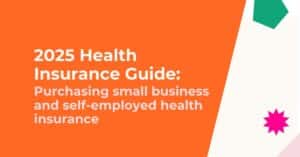If I’m shinin’ everybody gonna shine
Congratulations – you’re getting a raise today! Why? Well, first off…I guarantee that you’re not paying yourself enough. And you’re probably not maxing out your retirement. So that’s a pretty good reason.
I forget there’s an International Day or Month of the Woman. I’ve been working in women-led environments for seven years. My last full-time job was 93% female. The majority of the founders I work with identify as female. On the rare occasion I attend a conference, I’m shocked to see the Clone World of White men in blue suits with open collared white shirts. Where did all these men come from?
But then I watch things like this interview with Double X Economy author Linda Scott and realize I’m in a big fat self-created bubble. 80% of global land is owned by men. 80% of global capital is controlled by men. And, in her research, Linda Scott found that from any small rural village to the Fortune 500 board room, women face exactly the same economic biases. Which is what we call systemic. Here’s her quote:
“It’s implausible to me that women in every part of the world and in every industry and every occupation and every time in history would have chosen to be economically subordinate.”
I sure didn’t choose that. Did you?
Which is a second reason why you are giving yourself a raise. Whether you choose a set amount to pay yourself every month or start contributing to your retirement, I want you to do something today to improve your economic power.
It’s time to prioritize your financial health as the owner of your self-funded company. Back in January, this was my #1 recommendation for how to be successful in 2021. Expecting to get paid commits you to being profitable. And figuring out how to operate profitably will drive growth.
If you aren’t paying yourself, you don’t have a business. So even if it’s just $100 more to start, make it happen. Set the expectation that you’ll get paid. You’ll be surprised how quickly you find the money.
Still not convinced? How about this: we’re up against 4,000 years of written laws that say women aren’t legal people and we can’t have assets. The oldest surviving written law from 2000 BC, the Code of Ur-Nammu, defines women as slave, daughter, or wife. Property.
This was reborn as coverture from the 1200s until, in the US, into the 1880s. Coverture said women had no identity and thus no right to their own property or bodily control. Chattel marriage applied to all but the highest royalty, which is why women had a bride price. Coverture has gradually been eroded in the US but you’ll see aaaallll the vestiges in your daily life. It’s why to this day a male partner has to be listed first on financial transactions.
All American women got the right to vote in 1965, in no small part thanks to civil rights attorney Pauli Murray. And finally in 1971, Ruth Bader Ginsberg successfully argued before the Supreme Court that women could establish financial accounts for themselves, in their own names. Go for credit cards and credit scores. Go for mortgages and property. Go for 14th Amendment rights (ratified in 1868, btw). IN FREAKIN’ 1974.
That leaves almost exactly my lifetime, in which American women could take ownership of our choices — physically, socially, economically. And the World Bank and Linda Scott’s research in the last 10 years show that the historical systemic issues that existed in the beforetimes still exist at every level, in every society, for 51% of the world’s population.
You know how to change 3,950 years? Start a company. Unapologetically charge what you’re worth. Make an equitable, sustainable profit that pays yourself and others livable wages and benefits. Set intersectional policies. Buy real property. Invest.
And Give. Yourself. A. Damn. Raise.
If you can’t do that today, or if you can’t see a path to profit in what your company does right now, set the intention. Make a different plan.
If you’re ready to talk, grab a meeting with me this week.



